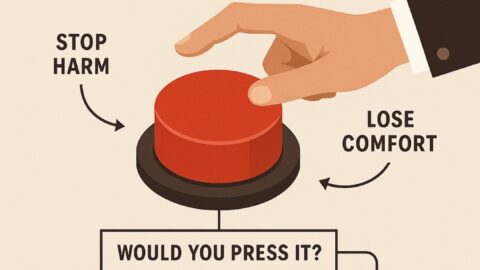“Progress is not achieved by luck or accident, but by working on yourself daily.” — Epictetus
This quote by Epictetus, the ancient Greek Stoic philosopher, serves as a timeless reminder that self-improvement, growth, and success are not products of chance but the results of consistent, intentional effort over time. Epictetus emphasizes the power of discipline, deliberate practice, and personal accountability as the cornerstones of meaningful progress.
Let’s explore this quote in philosophical, emotional, psychological, practical, and modern-day contexts to fully understand its wisdom and relevance.
Philosophical Perspective
A. The Stoic Foundation of Self-Mastery
- Epictetus, a Stoic philosopher, believed that the key to a fulfilling and meaningful life lies in self-discipline and intentional effort.
- Stoicism teaches that external events are beyond our control, but our thoughts, actions, and reactions are within our power.
- Progress, therefore, is not about luck or external factors, but about the consistent refinement of one’s character and actions.
Key Idea:
- Control what you can (your actions, habits, and mindset).
- Accept what you cannot control (luck, external circumstances, and other people’s actions).
Example:
- A student who consistently studies and reviews daily is far more likely to succeed in exams than one who relies on last-minute cramming and luck.
B. Virtue as a Continuous Practice
- In Stoicism, progress is tied to the practice of virtue (wisdom, courage, justice, and temperance).
- Working on yourself daily means striving to act with integrity, make wise choices, and stay disciplined in the face of challenges.
Example:
- A person aiming to become more patient practices mindfulness daily, understanding that patience is not achieved overnight.
Emotional Perspective
A. Emotional Growth Requires Daily Effort
- Emotional stability and resilience are not developed by accident—they come from daily reflection, self-awareness, and practice.
- Managing anger, fear, or sadness is not about hoping for better emotions but about actively developing emotional intelligence.
Example:
- Someone who journals every day to process their emotions will have greater emotional clarity and control than someone who suppresses their feelings.
B. Overcoming the Illusion of Instant Gratification
- In a world driven by instant results, the discipline of daily effort can feel slow and unrewarding.
- Emotional maturity involves accepting that meaningful progress takes time and cannot be rushed.
Reflection Question:
- Are your daily habits aligned with the emotional outcomes you desire?
Psychological Perspective
A. The Role of Habits in Progress
- Psychologist James Clear, in Atomic Habits, emphasizes that small, consistent actions compound over time to create significant change.
- Progress is rarely the result of a single monumental effort but rather a series of small, intentional daily habits.
Key Idea:
- “You do not rise to the level of your goals. You fall to the level of your systems.” — James Clear
Example:
- Someone who meditates for 10 minutes daily will likely experience greater mental clarity over time than someone who meditates sporadically for an hour.
B. The Growth Mindset
- Carol Dweck, a renowned psychologist, speaks of the growth mindset—the belief that abilities and intelligence can be developed through dedication and hard work.
- A fixed mindset expects success to come from natural talent or luck, while a growth mindset focuses on effort, learning, and perseverance.
Reflection Question:
- Do you approach challenges with a fixed mindset (“I’m not good at this”) or a growth mindset (“I can learn this with practice”)?
Practical Application
A. Consistency Over Perfection
- Progress isn’t about dramatic leaps forward; it’s about showing up consistently, even on difficult days.
- Doing something poorly but consistently is often better than doing something perfectly but rarely.
Example:
- A person exercising for 20 minutes every day will make more progress over time than someone who works out intensely once a month.
B. Break Goals into Daily Actions
- Large goals can feel overwhelming, but breaking them into small, manageable daily steps makes them achievable.
- Success lies in systems, not just goals.
Example:
- Writing a book seems daunting, but writing just 300 words a day can lead to completing a draft within a year.
C. Daily Reflection and Accountability
- Take time every day to review your actions, assess your progress, and adjust your approach.
- Tools like journaling, planners, and accountability partners can help maintain consistency.
Reflection Practice:
- Ask yourself each evening:
- What did I do today to move closer to my goals?
- What could I have done better?
Modern-Day Relevance
A. In the Workplace
- Career growth depends less on luck or external opportunities and more on daily skill-building, networking, and consistent effort.
- Employees who work on their skills and mindset daily are better prepared for opportunities.
Example:
- An employee who dedicates time every day to learning new skills will outperform someone waiting for a lucky break or promotion.
B. In Relationships
- Strong relationships require daily acts of kindness, communication, and effort.
- It’s not grand gestures but small, consistent actions that build trust and intimacy.
Example:
- A spouse who regularly listens and supports their partner builds a stronger bond than one who only shows affection during special occasions.
C. In Personal Development
- Growth in areas like spirituality, physical fitness, or creativity comes from daily effort.
- There are no shortcuts; consistency is the foundation of long-term success.
Overcoming Challenges
A. The Myth of Motivation
- Motivation is fleeting; it’s not reliable for long-term progress.
- Discipline and habits are what sustain daily effort even when motivation fades.
Key Lesson:
- “Discipline is choosing between what you want now and what you want most.” — Abraham Lincoln
B. Embrace Failure as Part of Progress
- Setbacks are inevitable, but they don’t negate progress—they are part of the journey.
- The key is to learn from failure and continue moving forward.
Final Reflection
Epictetus’ wisdom reminds us that progress is an ongoing journey, not a destination. It’s built on deliberate, consistent actions, not luck, accident, or occasional bursts of effort.
Key Takeaways:
- Take Daily Action: Progress comes from showing up every day, even when it’s hard.
- Focus on Habits: Small, consistent efforts create big results over time.
- Embrace Discipline Over Motivation: Motivation fades, but discipline sustains progress.
- Reflect Regularly: Assess your daily actions and make necessary adjustments.
- Own Your Journey: Progress is your responsibility; no one else can do it for you.
Final Thought:
“Progress isn’t a product of chance; it’s a product of choice. Choose daily effort, and success will follow.”







